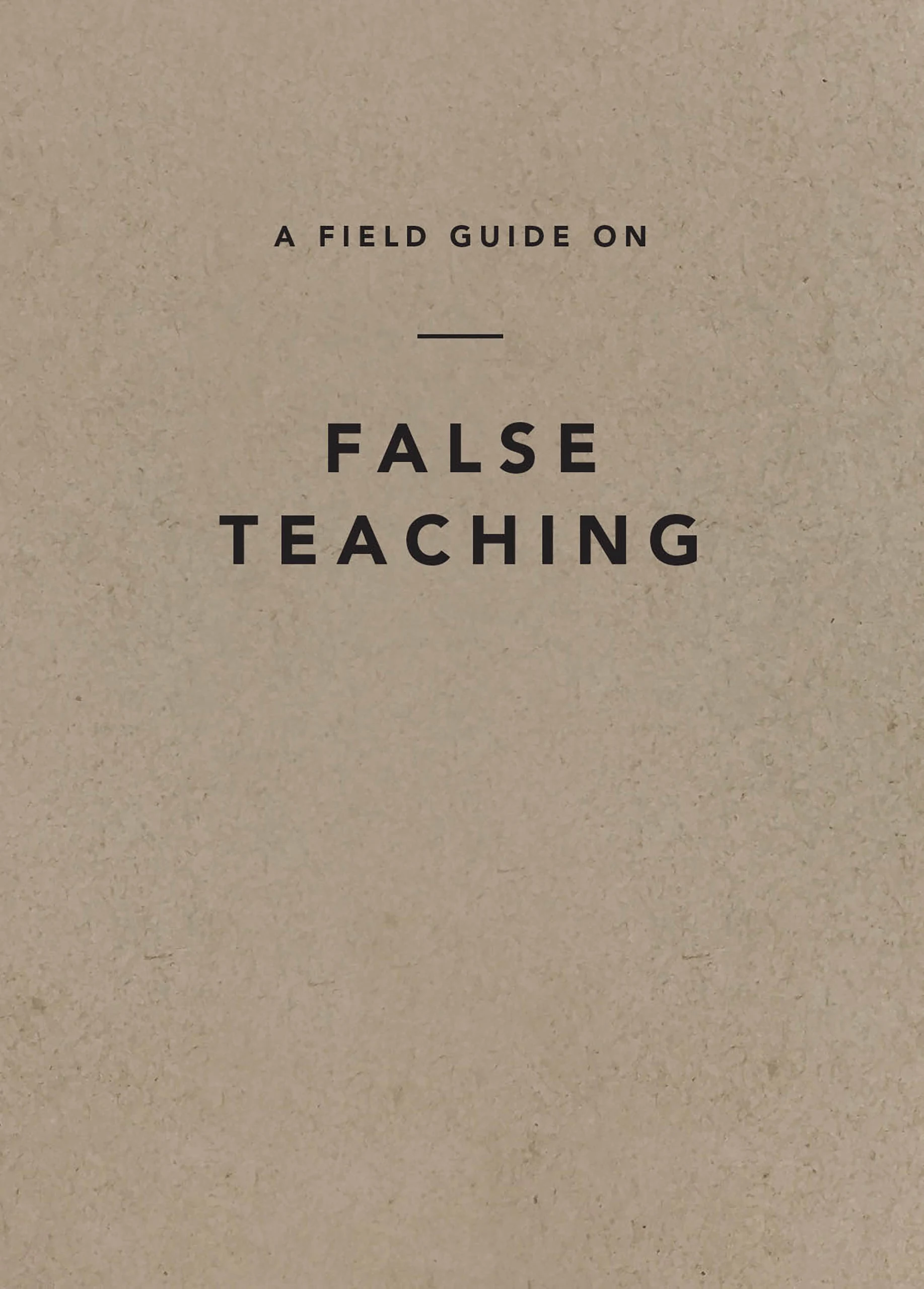What Are Legalism and Antinomianism?

What are legalism and antinomianism?
The terms legalism and antinomianism describe two false teachings regarding the relationship between the law and the gospel. Legalism is the insistence that a person is accepted by God on the basis of his law keeping. It teaches that we are declared righteous before God through our own observance of either God’s law or man-made rules and regulations. Antinomianism says that God does not require a believer to obey the moral law (i.e., the Ten Commandments). In its more extreme and perverted form, antinomianism permits immoral behavior based on the leniency of grace.
When did they begin?
Legalism and antinomianism are rooted in the fall of Adam. All mankind is predisposed to these two moral and theological errors. Accordingly, countless forms of legalism and antinomianism have surfaced throughout history. Legalism and antinomianism undergird all forms of false teaching and heresy.
Who are the key figures?
Legalism
Jesus rebuked the religious leaders in Israel for their hypocritical, self-righteous teaching and lives (Matt. 23:4; Luke 18:9). The Apostle Paul stridently defended the gospel against the doctrinal legalism with which the early church was infected (Gal. 1–3; 1 Tim. 1:6–7).
The Roman Catholic Church has long promoted an elaborate system of religious legalism, which is most evident in its monastic asceticism, penitential system, sacramentalism, and emphasis on merit.1 Roman Catholicism denies the biblical doctrine of justification by faith alone in Christ alone, teaching that a person is justified by faith in Christ together with his Spirit-wrought good works.
Doctrinal and practical legalism has surfaced in evangelical and Protestant churches over the centuries. By imposing obligations on members to observe man-made rules and regulations, many churches have advanced a form of man-centered legalism (Col. 2:20–23).
In recent decades, proponents of the New Perspective(s) on Paul have taught that a person’s final right standing before God is based on his obedience to God’s commands.
False religions such as Islam, Judaism, and Buddhism, because they teach a works-based salvation wherein we enter heaven or experience Nirvana because of our good deeds, are non-Christian forms of legalism.
Antinomianism
In the early church, certain false teachers promoted the idea that God’s grace tolerates lawless living (see 2 Peter and Jude). Some wickedly dismissed sexual immorality in the name of grace (Jude 4). The Apostle John contended against antinomian ideas in his first letter (1 John 2:4).
Throughout church history, antinomianism has appeared in less overt and perverse forms than that in which it appeared in the early church. Martin Luther wrote Against the Antinomians to refute the erroneous teaching of the neo-Lutheran antinomian Johannes Agricola. Edward Fisher wrote The Marrow of Modern Divinity to address the undercurrents of legalism and antinomianism in certain streams of the Puritan movement. This book was also at the center of a debate over antinomianism in the Church of Scotland in the eighteenth century.2 In the twentieth century, notable dispensational teachers promoted a form of antinomianism called “easy-believism.”
What are the main beliefs?
In the church, legalism surfaces when people teach or believe these ideas:
-
Get in by grace; stay in by law keeping. While most forms of legalism in the church deny strict merit in the sense that they affirm the necessity of grace, almost all insist that an individual’s good works are necessary for his final justification before God on judgment day. Roman Catholicism teaches that a person is initially justified at baptism;3 however, his final right standing before God is dependent on a life of continued adherence to religious rituals and Spirit-wrought good works.
-
Meriting righteousness. Legalism teaches that people can cooperate with God in order to gain a right standing by their works. Though this view does not involve strict merit, it still reflects a meritorious scheme of salvation. Legalism is often accompanied by a self-righteous spirit in those who advance it. As Luke explained, the Pharisees “trusted in themselves that they were righteous, and treated others with contempt” (Luke 18:9). The Jews of Paul’s day were “seeking to establish their own . . . righteousness” (Rom. 10:3).
Legalism and antinomianism undergird all forms of false teaching and heresy.
Antinomianism is evident in these two beliefs:
-
Grace, not law. Antinomianism teaches that because God’s grace is greater than all our sin, we are no longer under any obligation to obey God’s law. If good works do not figure into our justification—our being declared righteous in God’s sight—they are unnecessary in the Christian life. Much antinomian teaching denies that someone can displease God by his disobedience. Accordingly, believers no longer need to heed the warnings in Scripture.
-
Justification only. Many forms of antinomianism focus solely on justification by faith alone in Christ and thereby functionally deny sanctification. In the teaching of neo-Lutheran antinomianism, faith does not result in a believer’s following paths of obedience to God. In dispensational antinomianism, the Ten Commandments have been fulfilled by Christ and are no longer binding on believers.
Why do people believe this form of false teaching?
Our depraved human hearts gravitate toward legalism and lawlessness. The inclination to earn salvation is rooted in our sin nature. Legalism feeds on the sinful pride of mankind by offering a way to make up for the wrongs we have done. Legalism convinces the consciences of people that they have in themselves what they need to attain righteousness before God and men.
Antinomianism works on people’s consciences by convincing them that God does not require us to turn from our wicked ways. Antinomianism presents a Christianity that requires no personal effort or spiritual striving against sin. It offers a counterfeit freedom to the true freedom that Christ gives believers.
How does it hold up against biblical Christianity?
In contrast to the two main doctrines of legalism, Scripture teaches the following:
-
We do not begin the Christian life by trusting in Christ and then bring it to completion by our works (Gal. 3:1–4; Eph. 1:3–14; Phil. 1:6). Justification is a once-for-all, irreversible act of God by which He forgives all the sins of believers and accepts them as righteous only because of the imputed righteousness of Christ (Gen. 15:6; Rom. 3:21–22; 4:1–5). The sanctification of a Christian does not add to his standing before God. Believers cannot lose their standing before God because of their sin, though God may chasten them for it.
-
The law of God requires perfect obedience (Gal. 3:10–11). Christ was born subject to the law in order to merit perfect righteousness for His people (Gal. 4:4). As the representative last Adam, Jesus obeyed the law of God perfectly. In the place where Adam sinned, Jesus obeyed. God produces good works in believers after He accepts them in Christ, but these works do not factor into their standing before Him (Eph. 2:8–10).
Contrary to the two main doctrines of antinomianism, Scripture teaches the following:
-
God’s justifying grace is greater than all our sin (Rom. 5:21), and it leads to holiness in the lives of those whom He has justified. The Apostle Paul defended the gospel against the charge of antinomianism by explaining that the believer’s union with Christ results in holiness (Rom. 6:1–14). Paul often defended the role of the law in the life of a Christian (Rom. 13:9; Eph. 6:1). Although no one is justified by law keeping, believers fulfill God’s law through love (Gal. 5:14). Every believer is to take the warnings of God with the utmost seriousness (1 Cor. 6:9–10).
-
In justification, Jesus atones for the guilt of our sins. In sanctification, Jesus, who has broken the power of sin, enables us to live more and more for Him (Rom. 6:6–10). While justification is a once-for-all act of God, sanctification is an ongoing process in the life of a believer. Christians are called to work out in their Christian lives what God is working in them (Phil. 2:12–13). This includes actively pursuing a life of holiness and obedience to God’s commandments.
How can I share the gospel with those who hold to these forms of false teaching?
-
Focus on the many rejections of these errors in Scripture. Scripture constantly addresses the false teachings of legalism and lawlessness. In the Old Testament, God always calls rebellious Israel to repentance for their lawless deeds. In the Gospels, Jesus continually rebukes the religious leaders of Israel for their legalism. In the Epistles, the Apostles address the dangerous false teachings of both legalism and lawlessness. The more we direct others to Scripture to see the prevalence of these errors, the more we will be able to help convince them of the danger of embracing them and to give them the gospel remedy.
-
Focus on the biblical teaching about the depravity of the human heart. Since legalism and antinomianism stem from the sinful depravity of the human heart, we can help others move away from these errors by pointing to what the Scriptures teach about our sinful condition. The Bible teaches that all people by nature are “dead in . . . trespasses and sins” (Eph. 2:1–5). In ourselves, we are unable to do anything spiritually pleasing to God (Rom. 5:6; Eph. 2:12). All our deeds apart from Christ are violations of God’s law, for which we deserve God’s eternal wrath and judgment (Matt. 7:23).
-
Focus on the sufficiency of the person and work of Christ. The message of Christ crucified cures legalism and antinomianism. Jesus died to deal with our self-righteousness and lawlessness. Christ came as the last Adam (Rom. 5:12–21). We have no righteousness apart from Him. When we come to see that we receive His imputed righteousness by faith alone, we will stop seeking to establish a righteousness by our performance (Phil. 3:9). As we recognize that Jesus died to atone for our lawlessness (1 John 3:4), we will desire to live a life of obedience to His commandments. When we understand that Christ is the source of sanctification for believers (1 Cor. 1:30), we long to be conformed more and more to His image.
-
Paragraph 2010 of the Catechism of the Catholic Church states, “Moved by the Holy Spirit and by charity, we can then merit for ourselves and for others the graces needed for our sanctification, for the increase of grace and charity, and for the attainment of eternal life.” Accessed September 9, 2019. ↩
-
For an explanation of the Marrow Controversy, see Sinclair Ferguson’s Ligonier teaching series The Whole Christ. ↩
-
Catechism of the Catholic Church, paragraphs 1266 and 2020, accessed September 9, 2019. ↩



